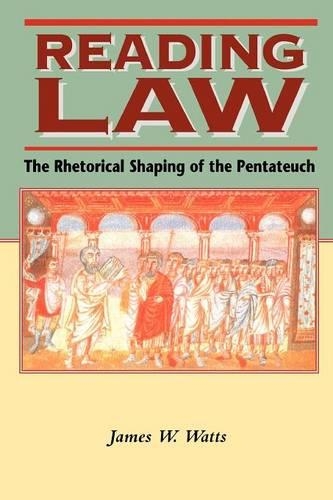
Reading Law: The Rhetorical Shaping of the Pentateuch
(Paperback)
Publishing Details
Reading Law: The Rhetorical Shaping of the Pentateuch
By (Author) James W. Watts
Bloomsbury Publishing PLC
Sheffield Academic Press
1st June 1999
United Kingdom
Classifications
Tertiary Education
Non Fiction
222.1066
Physical Properties
Paperback
192
277g
Description
Watts here argues that conventions of oral rhetoric were adapted to shape the literary form and contents of the Pentateuch. The large-scale structure-stories introducing lists of laws that conclude with divine sanctions-reproduces a common ancient strategy for persuasion. The laws' use of direct address, historical motivations and frequent repetitions serve rhetorical ends, and even the legal contradictions seem designed to appeal to competing constituencies. The instructional speeches of God and Moses reinforce the persuasive appeal by characterizing God as a just ruler and Moses as a faithful scribe. The Pentateuch was designed to persuade Persian-period Judaeans that this Torah should define their identity as Israel.
Author Bio
James Watts is Associate Professor of Religion at Syracuse University, Syracuse, New York, USA. Paul House is Professor of Old Testament Interpretation at the Southern Baptist Theological Seminary, Louisville, Kentucky.
